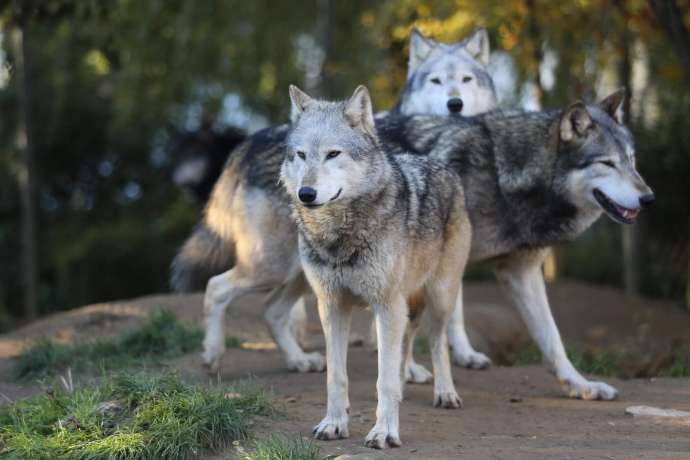STA, 13 August 2019 - In the wake of severe criticism by farmers that the emergency law to cull bears and wolves does not bring results, changes facilitating a faster reduction of the wolf population were agreed at a high-profile meeting Environment Minister Simon Zajc hosted at his ministry on Tuesday.
From now on, the Forest Service and the Institute for Nature Conservation will allow that wolves are killed in the entire areas where a pack of wolves lives.
At the moment, wolf culling is limited to the meadows which domestic animals use as pastures, a rule making the culling very hard and has been challenged by hunters.
Zajc explained, speaking to the press after the meeting, the solution was in line with the emergency law, which was passed in June.
A change to the system of emergency culling of wolves was also agreed to allow the Environment Agency to initiate emergency culling whenever a farmer has reported their domestic animals were attacked.
So far, the initiative has had to come from other stakeholders, most often from the Forest Service.
Nevertheless, the Forest Service and the Institute for Nature Conservation will still have to decide whether the culling is justified.
Zajc believes the two biggest obstacles to the emergency law bringing results have been removed.
Under the emergency law, hunters can kill eleven wolves and 175 bears, with the respective populations estimated at around 1,000 and at nearly 90.
Today's meeting came after farmers urged the government at a protest on Saturday to bring the wolf population under control, arguing the new law was ineffective.
The meeting was attended by the representatives of the Forest Service, the Institute for Nature Conservation and the Hunters' Association, among others.
Representatives of the Farmers' Trade Union, who staged the rally on Saturday, did not attend, and Zajc rejected their call for his resignation.
He however announced new meeting for the coming months to come to agreement on how to comprehensively improve the management of wolf and bear populations.
Forest Service data shows that nearly 680 domestic animals, mostly sheep and goats, were attacked by the end of July, double the number from the same period last year.
Earlier in the day, the leader of the opposition People's Party (SLS), Marjan Podobnik, said his party would offer every hunter who kills a wolf in line with the law EUR 500.
He also criticised the rather strict provisions governing the reduction of the wolf population, saying hunters would not hunt in fear of high fines.
Podobnik explained that a wolf could only be killed if it could be proved that it had attacked animals several times.
While the attacks on domestic animals are a problems, the safety of people in rural areas is just as important, he told the press in Ljubljana.
All our stories on wolves are here, while all our stories on hunting are here







